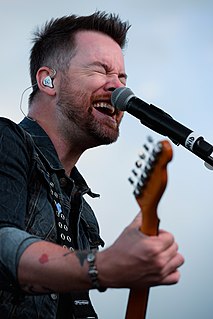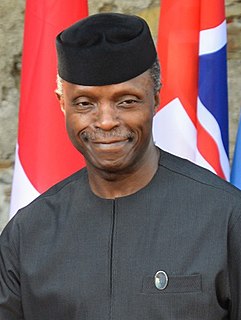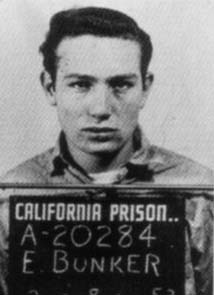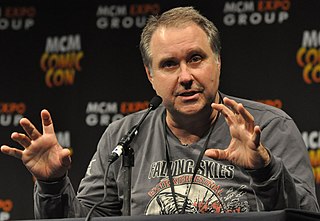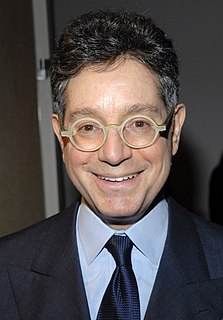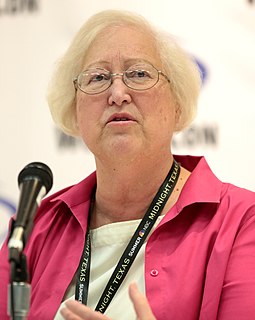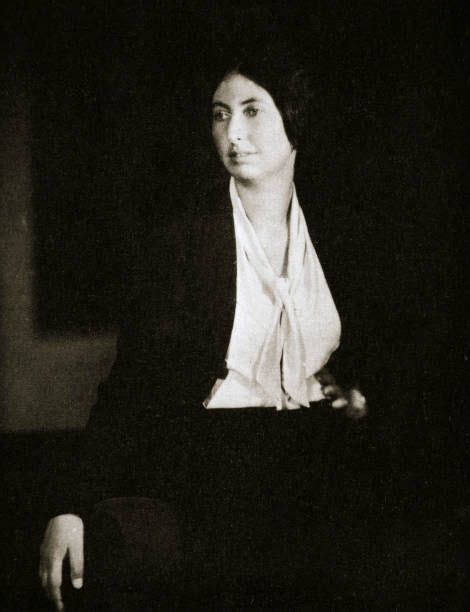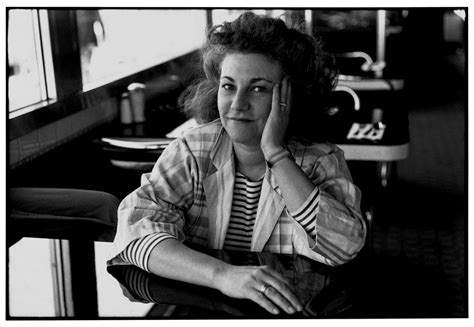Top 607 Existential Angst Quotes & Sayings - Page 9
Explore popular Existential Angst quotes.
Last updated on April 20, 2025.
Sometimes the most interesting visual phenomena occur when you least expect it. Other times, you think youre getting something amazing and the photographs turn out to be boring and predictable. So I think thats why, a long time ago, I consciously tried to let go of artists angst, and instead just hope for the best and enjoy it. I love the journey as much as the destination. If I wasnt a photographer, Id still be a traveler.
You can't win enough, you can't have enough money, you can't succeed enough. There is not enough. The only thing that will ever satiate that existential thirst is love. And I just remember that day I made the shift from wanting to be a winner to wanting to have the most powerful, deep, and beautiful relationships I could possibly have.
Our lazy embrace of Stewart and Colbert is a testament to our own impoverished comic standards. We have come to accept coy mockery as genuine subversion and snarky mimesis as originality. It would be more accurate to describe our golden age of political comedy as the peak output of a lucrative corporate plantation whose chief export is a cheap and powerful opiate for progressive angst and rage.
Funny as hell, searingly honest, and urgently real, Sam Pink's Rontel puts to shame most modern fiction. His writing perfectly captures the bizarre parade that is Chicago, with all its gloriously odd and wonderful people. This book possesses both the nerve of Nelson Algren and the existential comedy of Albert Camus.
The individuation of dharma practice occurs whenever priority is given to the resolution of a personal existential dilemma over the need to conform to the doctrines of a Buddhist orthodoxy. Individuation is a process of recovering personal authority through freeing ourselves from the constraints of collectively held belief systems.
Philosophy would do well to desist from issuing any further injunctions about the need to re-establish the meaningfulness of existence, the purposefulness of life, or mend the shattered concord between man and nature. It should strive to be more than a sop to the pathetic twinge of human self-esteem. Nihilism is not an existential quandary but a speculative opportunity.
I want to say that this business of corruption and the fight against corruption is a very serious matter, and sometimes I'm amazed that very little is being said outside of those who are saying so in government. It's an existential matter. I don't know whether it is possible to overemphasize the point, but I think it's a very crucial matter.
As a physician who was smoking a pack of cigarettes a day, getting drunk on weekends, stressed out about having 35 patients in the hospital, and not being able to help either them or myself, I had my existential crisis way before I met Maharishi. I did meet him and he was an influence, but I met many other people as well.
Sci-Fi is the genre that explored both possibilities: the end of our existential crisis and the end of our existence. My novel, 'The 5th Wave,' explores the latter scenario, because, frankly, I believe it represents the likeliest outcome of an extraterrestrial encounter. In short, if they're out there, we better hope they never find us.
Bananas are great, as I believe them to be the only known cure for existential dread. Also, Mother Teresa said that in India, a woman dying in the street will share her banana with anyone who needs it, whereas in America, people amass and hoard as many bananas as they can to sell for an exorbitant profit. So half of them go bad, anyway.
It is phenomenal how fast a little toot of smack will take away the agony of withdrawal and most other kinds of pain. What it cannot take away it makes meaningless. You may still have a broken arm, but somehow it doesn't matter so much. The same is true for angst and anxiety. It cancels pain so hidden that you were unaware of its existence until it disappeared.
And, what we've allowed ourselves to become - and this is part of Chris' ideas - is complacent, in allowing our lives to be taken over, or at least in allowing that kind of scrutiny into our lives. We've given up a little bit of that, and this is the existential nightmare of all of that. What happens when you suddenly find out that people have been watching you, with a purpose?
I started getting really curious about art. I read about the Dadaists and the Futurists and the Constructivists - those kind of movements which were reflecting the angst of the people of their times. Their work was trying to lead a movement. I began thinking about what was happening, with painting on the streets and painting on the trains as being similar but also coming from a real, pure space. It wasn't being created by academies. It was a spontaneous combustion of ideas that just happened.
Profitability, growth, and safeguards against existential risks are crucial to strengthening a company's long-term prospects. But if these three factors constitute a company's 'hard power,' firms also need 'soft power': public trust and acceptance, won by fulfilling a company's social responsibility.
I think Bergman's films have eternal relevance, because they deal with the difficulty of personal relationships and lack of communication between people and religious aspirations and mortality, existential themes that will be relevant a thousand years from now. When many of the things that are successful and trendy today will have been long relegated to musty-looking antiques, his stuff will still be great.
Among people I have met, the few whom I would term “great” all share a kind of unquestioned, fierce dedication; an utter lack of doubt about the value of their activities (or at least an internal impulse that drives through any such angst); and above all, a capacity to work (or at least to be mentally alert for unexpected insights) at every available moment of every day of their lives.
I'm only trying to present as honest a portrayal of the grimness of human ambition as I can. I'd hope it's rather uplifting, actually, since I find the sort of blind optimism and empty laughter of a great deal of "contemporary culture" to be more depressing than something that admits to a potential for disappointment and a gnawing sense of existential mockery.
Consciousness and Healing To proceed very far through the desert, you must be willing to meet existential suffering and work it through. In order to do this, the attitude toward pain has to change. This happens when we accept the fact that everything that happens to us has been designed for our spiritual growth.
Like art, love, and pornography, noir is hard to define, but you know it when you see it. For the purposes of the book and my longtime working understanding and definition of it, noir stories are bleak, existential, alienated, pessimistic tales about losers--people who are so morally challenged that they cannot help but bring about their own ruin.
I guess I worry about weird existential things, like how do we spend our final act. This is a very emotional question. I can't answer it without crying. I think, You're 56 years old, what did you do? You raised two good kids. What am I going to do now that is as meaningful as that? I don't know the answer yet.
When machines fail, when technology fails, when the conventional religion fails, people have got to have something. Even a zombin lurching through the night can seem pretty cheerful compared to the existential comedy/horror of the ozone layer dissolving under the combined assult of a million flurocarbon spray cans of deoderant." - The Mist
The entire range of human experience is present in a church choir, including, but not restricted to jealousy, revenge, horror, pride, incompetence (the tenors have never been on the right note in the entire history of church choirs, and the basses have never been on the right page), wrath, lust and existential despair.
One thing I'm super aware of in my music when I'm writing is: 'Am I overcomplicating this?' I'll write a song about some deep existential quandary and explore all these dumb thought waves, and then think 'Is it effective to say that? Or is it effective to say one simple thing that communicates the feeling better?'
At first when I heard about climate change, I was a climate denier. I didn't think it was happening. Because if there really was an existential crisis like that, that would threaten our civilisation, we wouldn't be focusing on anything else. That would be our first priority. So I didn't understand how that added up.
What surprised me was the angst at our democracy. And I understand it - I teach at a university and feel it in my students - but what I've tried to say to people is that we have amazing institutions, but nobody ever said we were perfect. We struggled before and we're struggling now, and we're going to struggle every day. We're a work in progress. That's why the American experience is so important for us to remember, and for us to be a beacon for others to enjoy those same rights.
But almost always, during the initial stage of the struggle, the oppressed, instead of striving for liberation, tend themselves to become oppressors, or sub oppressors. The very structure of their thought has been conditioned by the contradiction of the concrete, existential situation by which they were shaped. Their ideal is to be men; but for them to be men is to be oppressors
There's so much going on in Andrei [Bolkonsky]. He's wrangling with these big existential conundrums, and he tries out different routes to fulfillment. He tries falling in love, that doesn't work. He goes to war and searches for military glory, that doesn't work. He does the quiet life of a farmer. He's always active. That's what I loved about him, he's always looking, searching. He's really inquisitive.
For every Book of Job, there's a Book of Leviticus, featuring some of the most boring prose ever written. But if you were stranded on a desert island, what book would better reward long study? And has there ever been a more beautiful distillation of existential philosophy than the Book of Ecclesiastes?
The most important issues to address are the truly existential threats we face: climate change and nuclear war. On the former, the Republican leadership, in splendid isolation from the world, is almost unanimously dedicated to destroying the chances for decent survival; strong words, but no exaggeration. There is a great deal that can be done at the local and state level to counter their malign project.
The majority of American writers today have chosen passive non-resistance to things as they are, producing sloughs of poetry about their personal angst and anomie, cascades of short stories and rivers of novels obsessed with the nuances of domestic relationships - suburban hanky-panky - chic boutique shopping mall literary soap opera. When they do speak out on matters of controversy they attack not the evils of our time but fellow writers who may insist on complaining.
Sci-Fi is the genre that explored both possibilities: the end of our existential crisis and the end of our existence. My novel, The 5th Wave, explores the latter scenario, because, frankly, I believe it represents the likeliest outcome of an extraterrestrial encounter. In short, if they're out there, we better hope they never find us.
In my work, it's simultaneously realities, instead of parallel. Simultaneous avoids the problem of alternate reality. In parallel reality, there's always a hierarchy, and there doesn't necessarily have to be a hierarchy. When you're in a palace like Blenheim, you're supposed to be in awe - why not be in awe of something different than the stuff they're showing you? It's about finding your own existential place.
The internet takes a lot of the anxiety of life away. It's a kind of deity. You're never lonely. You're always distracted. If you spend enough time on it, there's not really that nagging sensation of existential despair; it erases it very effectively. And it's monolithic. And thanks to it, we've got the ways to linger there after death - your blog exists afterwards, your e-mail exists afterwards.
To emotionally accept impending disaster, to attain the gut-level understanding that the power elite will not respond rationally to the devastation of the ecosystem, is as difficult to accept as our own mortality. The most daunting existential struggle of our time is to ingest this awful truth-intellect ually and emotionally-and continue to resist the forces that are destroying us.
Initially, I think I was eager to get off Staten Island and go away for school, that kind of thing. Then what you do maybe 10 years after that, you start maybe appreciating all the great things about the place you grew up. You can go back and enjoy it because you don't have that angst or sense of struggle to get away anymore.
The desire to live life to its fullest, to acquire more knowledge, to abandon the economic treadmill, are all typical reactions to these experiences in altered states of consciousness. The previous fear of death is typically quelled. If the individual generally remains thereafter in the existential state of awareness, the deep internal feeling of eternity is quite profound and unshakable.
Boy meets girl. Boy marries girl. Boy and girl angst over which family they visit at Thanksgiving and which one in December and whether or not it's best to serve turkey or goose for the family feast. When first faced with the reality that the family you married into does things differently, the warmth of tradition can take on a chill.
I think that obviously the quest for purpose, or meaning, or understanding to existence is something that I always think about, always deal with. I guess everybody does - that existential crisis of human condition. It's nothing new. But I'd love to come across something that really made me believe in something.
The most fundamental challenge of the anthropocene concerns agency. For those who lived the Enlightenment dream (always a minority but an influential one), agency was taken for granted. There were existential threats to agency (e.g., determinism) but philosophy mobilized to refute these threats (e.g., by defending libertarianism) or to defuse them (e.g., by showing that they were compatible with agency).
We, the great American nation, decided that we've got 138 military bases around the world and we've now figured out that we can buy these drones from the Israelis, and we've decided that the way to proceed is to use this new technology to go and kill anybody that we don't like or who disagrees with us or who we might perceive as making an existential threat.
Well, you know, there's depression and depression. What I mean by depression in my own case is that depression isn't just the blues. It's not just like I have a hangover in the weekend ... the girl didn't show up or something like that. It isn't that. It's not really depression, it's a kind of mental violence which stops you from functioning properly from one moment to the next. You lose something somewhere and suddenly you're gripped by a kind of angst of the heart and of the spirit.
Jesus clearly believed in the reality of Satan and other principalities and powers. Now, I have very compelling historical, philosophical, and existential reasons for concluding that Jesus is Lord, and if I confess him to be Lord, I don't see how I can consider myself in a position to ever correct his theology, especially about such a foundational theological matter!
There is really a je ne sais quoi about turkey cooking - the air of festivity, the family squabbles, the constant basting - that does not apply to the turkey breast, which is, really, a convenience of food... A turkey without seasonal angst is like a baseball game without a national anthem, a winter without snow, a birthday party without candles.
I went through this kind of existential crisis. I was going through a breakup; I tore my ACL and my meniscus and had to have surgery, so I was out of school for a few months. Then my computer crashed, which was, like, my whole life. So when I came out of it, I started making music that, I think, was the most true to me.
And if you listen to Irish music, they say that kilts came from the middle east. So really I'm an Arab. If you listen to the way someone like Sinead O'Connor sang. It could be Muslim. You know that angst that sort of ****. That wail. I think it's in our genes. I think certain stuff is in our genes, like nobody can dance like a black guy. It's in their genes. So we don't have oil, but we have poetry.
I was not popular in school, and I was definitely not a ladies' man. And I had a very painful adolescence, because it was all very strange to me. It wasn't like I got beat up, but the humiliation and isolation, and the existential 'God, I exist, and nobody cares' of being a teenager were extremely pronounced for me.
Yoga is existential, experiential, experimental. No belief is required, no faith is needed - only courage to experience. And that's what's lacking. You can believe easily because in belief you are not going to be transformed. Belief is something added to you, something superficial. Your being is not changed; you are not passing through some mutation.
Climate change is often the first thing I think about it in the morning, and the last thing I think about before I go to bed. It is not something that escapes that my mind, so inevitably, I had to kind of express that existential terror through art and music. My hope is to channel that confusion and energy into something good.
What I worry about ultimately is that when we're stripped of our privacy, when we're stripped of free will, when we start to merge with machines in a more robust way, at some point, we'll cease to be identifiably human. And therefore, I think our humanity is, in some ways, the thing that's under existential threat.
To live every day as if it had been stolen from death, that is how I would like to live. To feel the joy of life, as Eve felt the joy of life. To separate oneself from the burden, the angst, the anguish that we all encounter every day. To say I am alive, I am wonderful, I am. I am. That is something to aspire to.







